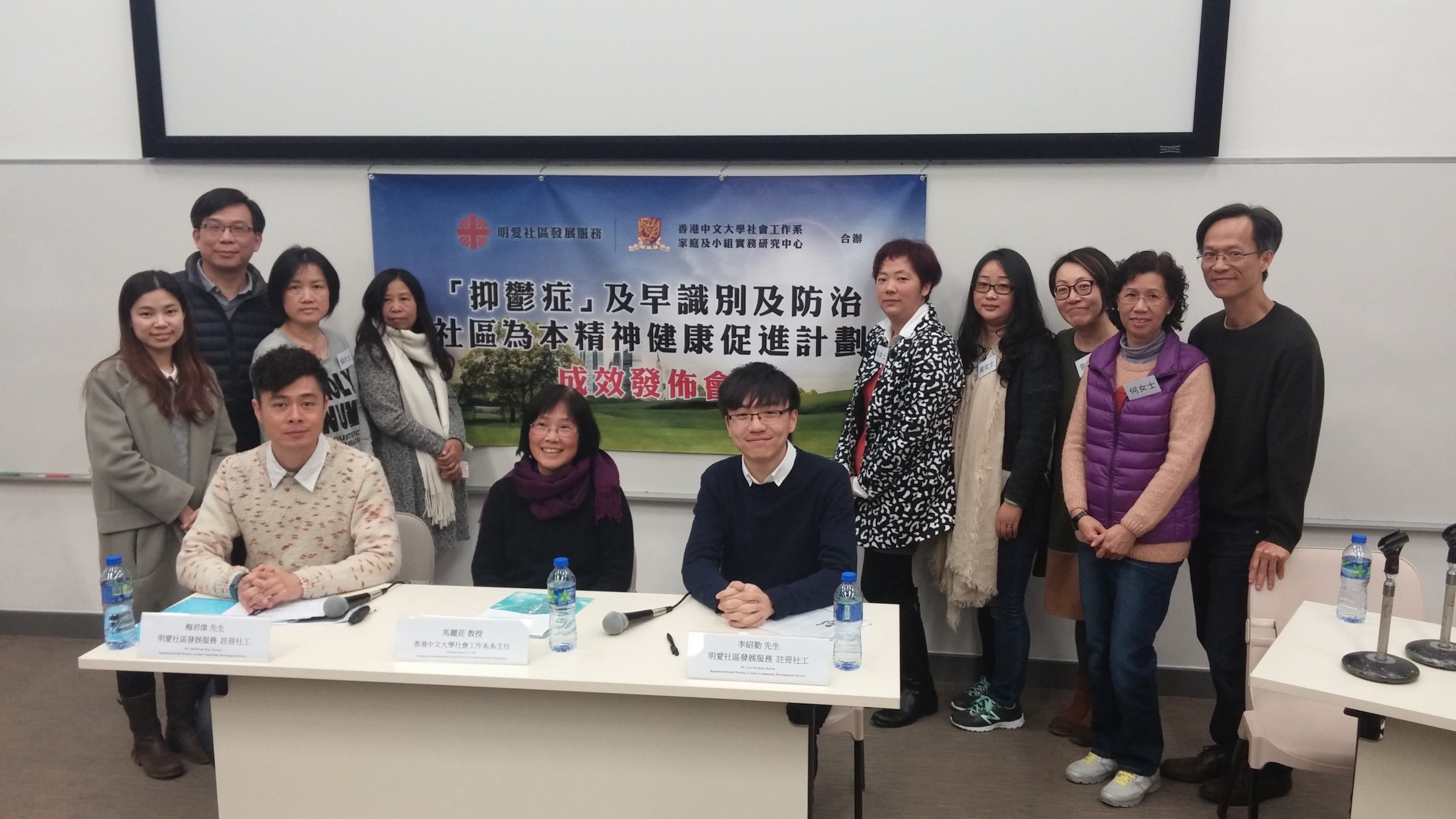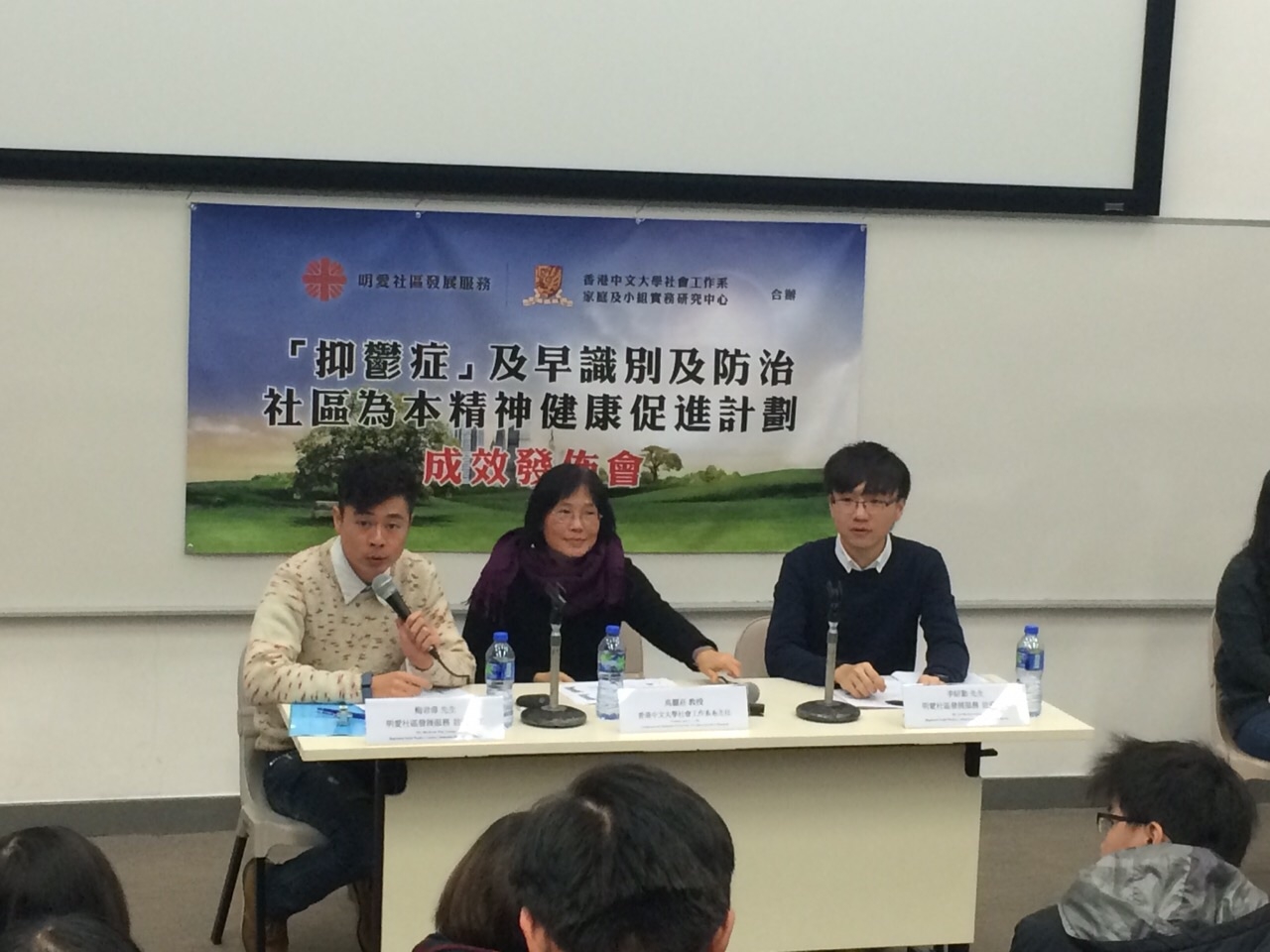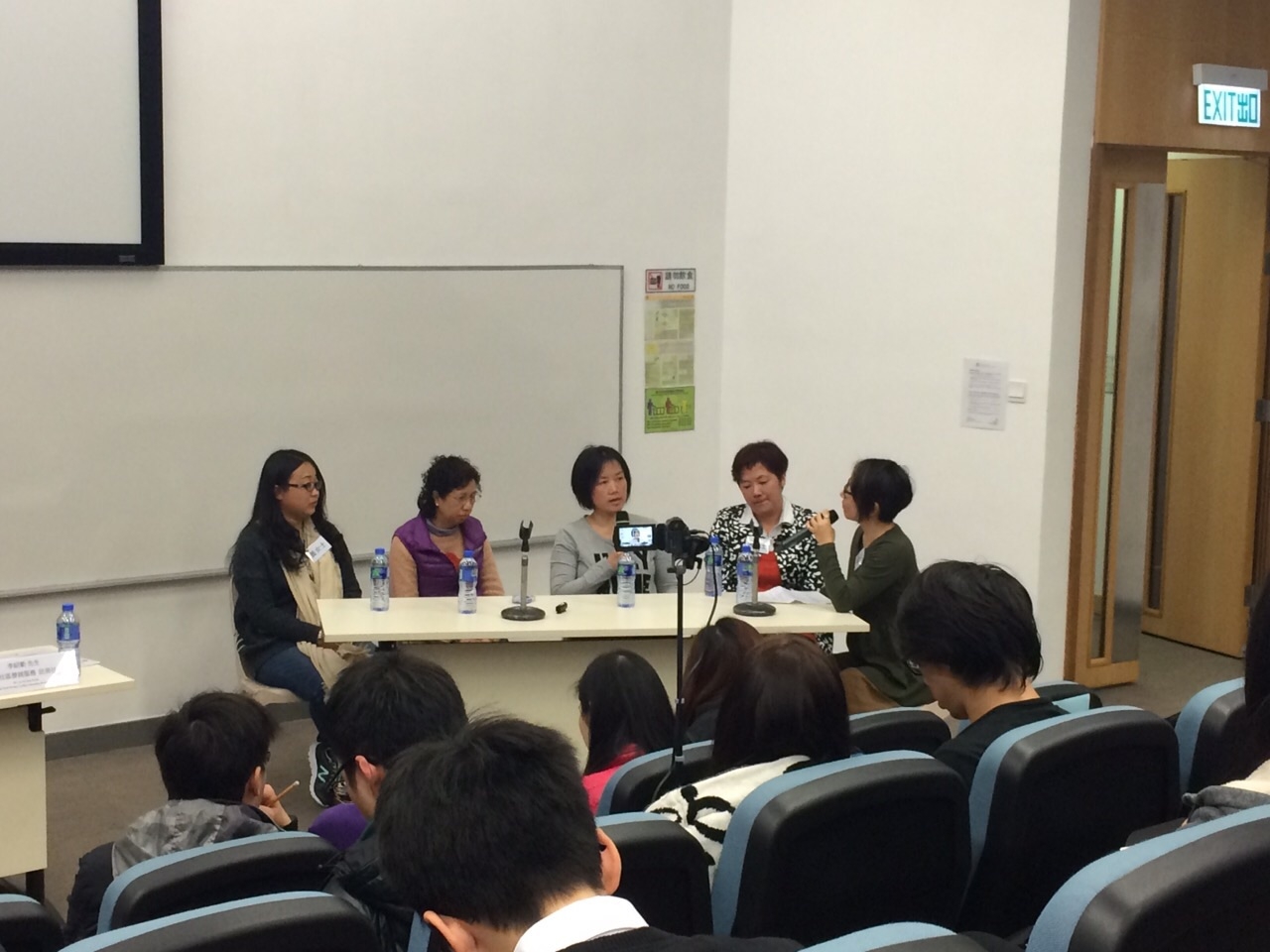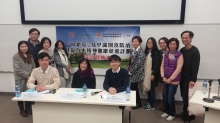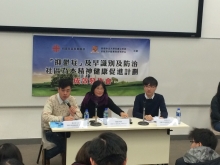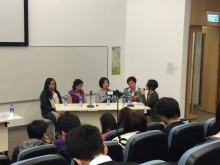CUHK
News Centre
CUHK and Caritas Join Hands to Promote Mental Health through Community-based Prevention Programme
The Family and Group Practice Research Centre, Department of Social Work, The Chinese University of Hong Kong (CUHK) and Caritas Community Development Service joint hands to enhance community mental health by promoting early identification and intervention over the past 10 years. Spokespersons of the project, “Early Identification and Promotion of Mental Health through Community-based Prevention Programme for Individuals Struggling with Depressive Symptoms” announced the latest findings today.
Prof. Joyce. L. C. Ma, project consultant and chairperson of the Department of Social Work at CUHK said that the use of community-based approaches to promote mental wellness is an international trend, with early identification and intervention of mental health problems being the most economic and effective measures. It is a worrying trend that mental health of adults and young people in Hong Kong seems to become worse, probably due to the multiple psychosocial stressors arising from increasingly polarizing society and homogenization of the job market. According to the Hospital Authority, about 15% to 25% of the population was affected by psychological problems. There is an urging need for early identification and intervention in the community.
To identify people at risk of depression, the out-reaching project was carried out in Eastern Hong Kong and Sham Shui Po District from 2012 to 2014, as reported by Mr. Mui Kwan Wai, spokesperson of the project. Alarmingly, nearly 40% of 3,000 people reached by the project had risk of developing depression. In particular, people living in Sham Shui Po District had even higher risk because of concerns about economic situation and employment. Poverty was the major stressor, while young adults, unemployed people and single parents tended to be more depressed. Mr. Mui suggested that out-reaching service for early identification should be promoted to different deprived communities and strategies should be formulated according to particular types of clientele.
Mr. Lee Siu Kan, Kelvin, another spokesperson of the project, highlighted another worrying fact that 80% of the people with risk of depression did not receive psychiatric treatment or mental health service. It was found that they were neither motivated to seek help, nor were identified by helping professionals in hospital settings or welfare service of the government for referral to any mental health service. Mr. Lee said that the project was indeed effective in identifying people at risk of depression. About 80% of the participants reported that after receiving immediate on-site counseling, they felt relieved, they became more likely to seek help when they suffered from emotional distresses, and they understood more about community resources.
Mr. Lee suggested that the government should set up a community work team which proactively reaches out to the community to promote early identification, prevention and intervention of mental health problem so as to spot mentally-ill people and those who are at risk of developing mental illness. It is also important to develop an integrated community service which includes services for referral to psychiatric department, emotion and stress management and mutual support. This approach which helps to build support network in the community would fill the gap of current services.
Several service users shared their experience after participating in the program. Ms Ho, one of the service users did not realize her symptoms of depression until being approached by a mental health promotion program of Caritas at a housing estate. She then joined a stress management course to understand her stresses and coping. She thought that this kind of community mental health service was very important as people seldom realized how serious they were affected by negative emotion, and they lacked help-seeking channel. Out-reaching service definitely helps to identify stressed-out people for timely service.
Ms Ng, another service-user, expressed her gratitude to friends in the self-help group who gave her encouragement which could not be obtained from family and her husband. She could share freely in the group, and the support gained helped her to face difficulties in the future.
Ms Wong, benefited from the service herself, later joined Mental Health Ambassadors Training and served people with mental health problems in the community as a peer counsellor. She said that being a companion was more effective in encouraging depressed participants to seek help when in need. Ms Yeung, another service-user, shared her experience of delivering telephone counseling to help stressed-out people who could not join community services because of long working hours. She could feel that their stressful feeling was relieved after telephone counseling.


